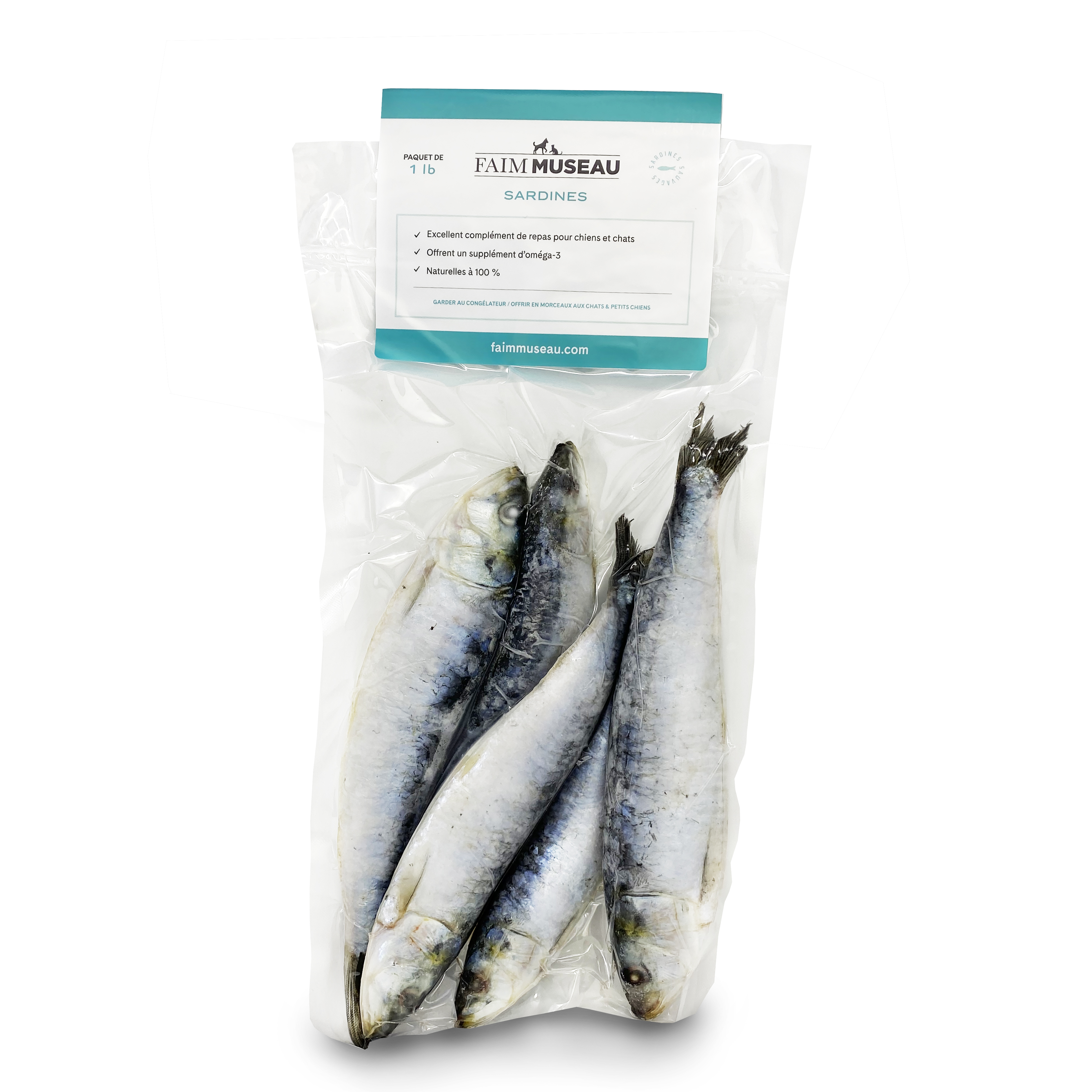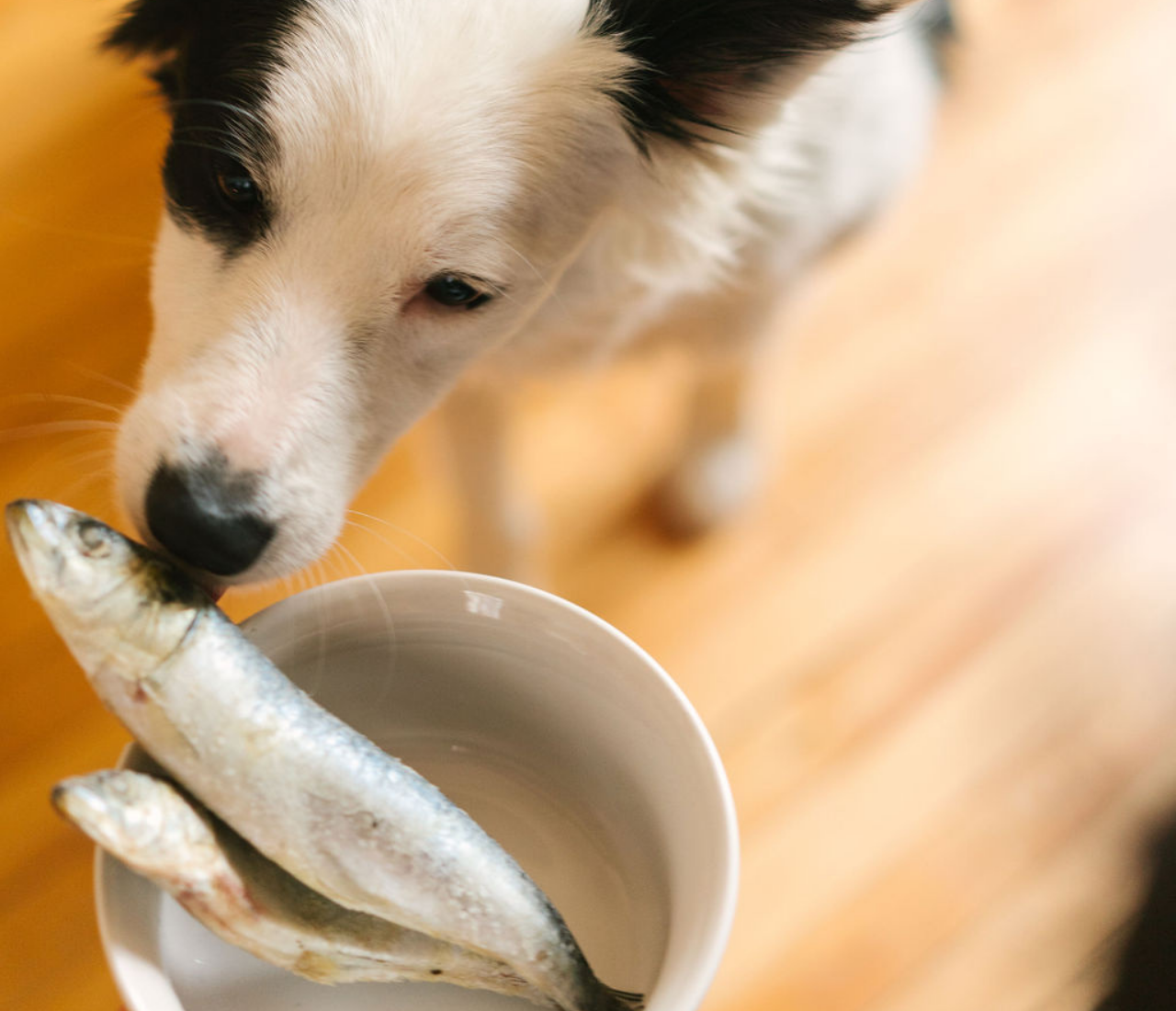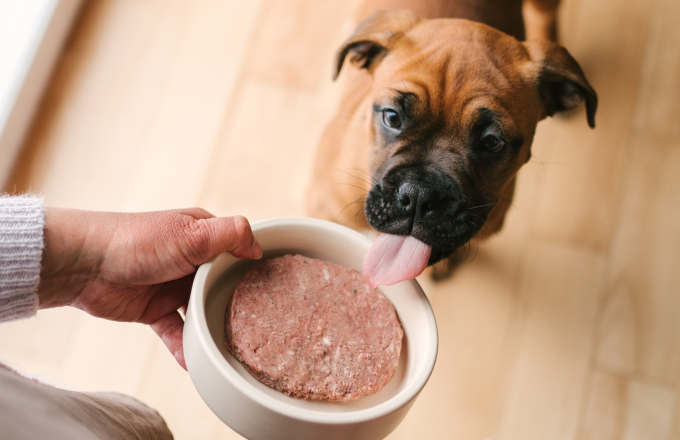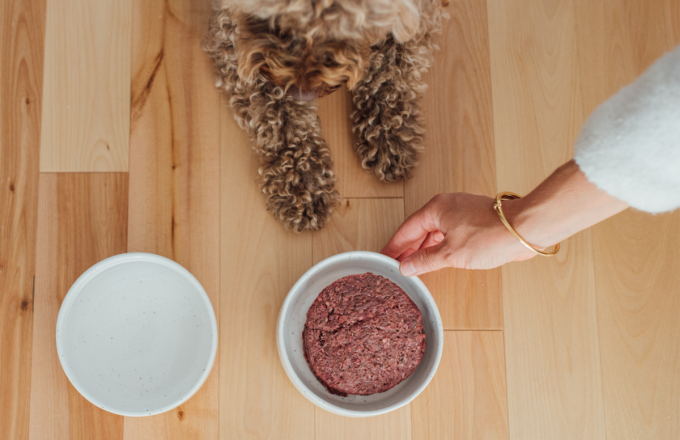Sardines: why & how to offer them to your dog
Dogs love fish, and sardines are no exception! They’re rich in protein, healthy fats, vitamins, and minerals. They have an important place in your dog’s diet. For your dog to benefit from them, it’s important to choose your sardines wisely and to serve them properly.
The benefits of sardines
Adding fresh sardines to your dog’s diet has many health benefits. Not only are they a good source of omega-3 fatty acids, they also contain protein, vitamin D, vitamin B12, calcium, selenium, and coenzyme Q10. See why this fish is great for improving and supporting your dog’s health.
Overall health
Sardines contain all of the amino acids your dog needs for optimal health, making it a complete protein. They help your dog’s organs, muscles, digestive system, and immune system function properly.
Skin and coat health
A diet rich in omega-3s helps restore shine and softness to your pet’s coat. It also reduces skin inflammation. These fatty acids, thanks to their anti-inflammatory properties, calm undesirable reactions, such as allergy-related itching.
Joint health
Hip and joint problems are more common in large or senior dogs, and sardines are their allies. The fatty acids in this fish help reduce pain caused by inflamed joints. Additionally, the calcium and phosphorus found in sardines support your dog’s skeletal system.
Ocular health
The omega-3 fatty acid DHA found in sardines plays a role in the quality of your dog’s vision. An adequate intake of DHA supports and protects retinal health. It also reduces the risk of eye disease.
Heart health
Another essential nutrient found in sardines is coenzyme Q10. This powerful antioxidant supports cellular energy necessary for cardiovascular health, carbohydrate metabolism, oxygen utilization, liver detoxification, and blood sugar control. As dogs get older, they experience a decrease in CoQ10 production. Sardines help compensate for the loss of this essential nutrient.
Puppies
DHA fatty acids help refine learning abilities, memory, eye function, and motor skills in puppies. DHA is instrumental to a puppy’s development, and it will help puppies reach their full potential. Coenzyme Q10 is excellent for neurological development too.
Are sardines good for all dogs?
Because they’re high in fat, sardines are not the best supplement to offer your dog if they’re overweight or have a sensitive stomach. Additionally, if your canine companion is predisposed to pancreatitis issues, it’s recommended that you consult a veterinarian before serving them this food.
Fortunately, if your dog doesn’t have any of these conditions, sardines, combined with a fresh, complete, and balanced diet, are a healthy treat for most healthy weight dogs.
Sardines and mercury
Being a small fish at the start of the food chain, sardines are very low in mercury and pollutants, unlike some larger fish. In addition, it’s important to know that sardines don’t consume other marine species that contain mercury and don’t live long enough for it to accumulate in their bodies to any significant degree.
Choosing the right sardines for dogs
Sardines come in many forms: fresh, dried, in oil, and canned. It can be difficult to choose the right option for your canine companion. Ideally, fresh sardines are your best bet. However, it’s possible to opt for canned sardines if the ingredients are right.
Fresh sardines
Fresh sardines provide better nutritional benefits for your dog, making them the best option on the market. Since they don’t undergo any cooking or processing, they retain all their nutrients.

Canned sardines
If you opt for canned sardines, prioritize those that are natural, in water, and without added salt. Read the list of ingredients carefully and make sure there are no artificial flavours, additives, or seasonings.
How to offer sardines to your dog?
As with any new food, it’s important to introduce sardines to your pet gradually and in small portions. This will allow your pet to adapt to sardines while maintaining good intestinal flora.
Follow this quick guide to eating fresh sardines:
- For a 0 to 30 pound dog: half a sardine (instead of a meal), two to three times a week.
- For a 30 to 60 pound dog: a sardine (instead of a meal), two to three times a week.
- For a 60 to 100 pound dog: two sardines (instead of a meal), two to three times a week.
From 30 pounds, it’s possible to feed them whole or cut them into small pieces, depending on your dog’s preferences.
Sardines are safe for dogs and make a tasty addition to a complete and balanced diet. If you’re ever unsure about them, our Canine & Feline Support team are happy to answer your questions.











